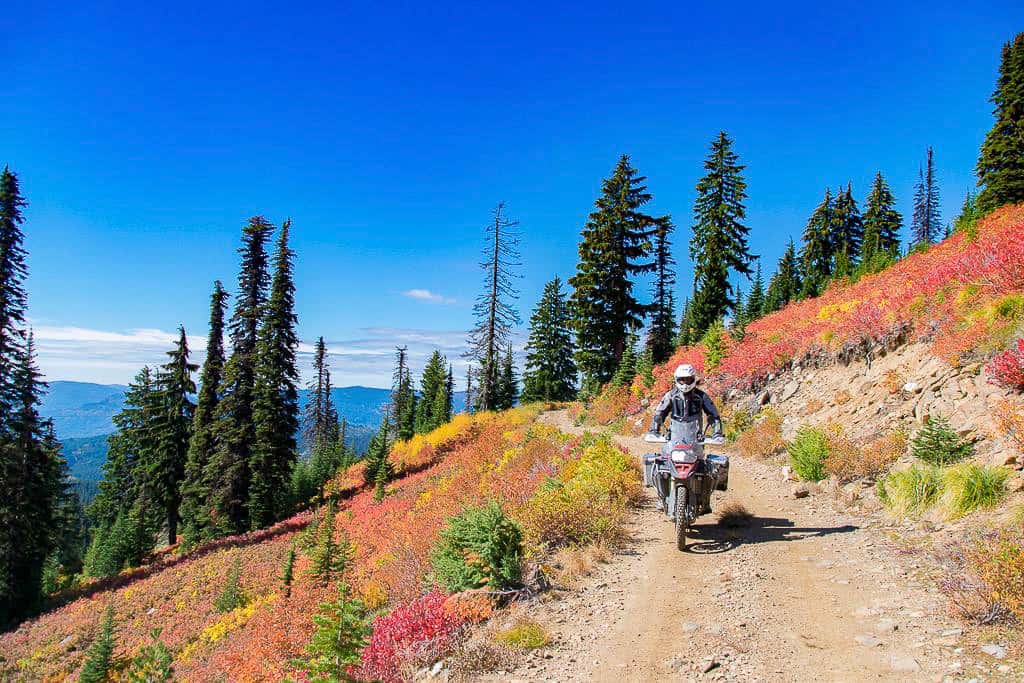
Heather and Dave: One of the most hindering things to have for a trip like this is expectations. And we had many, despite trying to take the Zen approach and, “Let the trip happen,” to quote Lois Pryce (or perhaps it was her favorite historic traveler, Freya Stark).
To be honest, at times the trip has not lived up to our expectations and has been a lot more difficult than we believed it would be. Some reasons why will be described in answers to your questions below.
However, we can’t say enough about the times we have been blown out of the water and have had our expectations far exceeded. For example, the generosity of strangers is astounding. It seems people’s pride lays in what they can offer you. I can’t count how many times we’ve had our credit card swatted away and heard, “Please, you are my guest, I’ll pay for that,” and they fill our tanks with fuel or buy us a few nights in a hotel or pay for lunch, dinner, drinks—whatever the case may be. Even when we’ve visited friends in our travels that live all over the world, and even though we already knew them, they still surprised us with their kindness and sense of giving.
Other expectation-exceeding experiences have been seeing things in person like the rocky towers of Patagonia, the neck on a giraffe in Namibia, snorkeling with a 100-year-old turtle in the Galápagos or the northern lights in Denali National Park.
Almost always, the day does not unfold as planned, but that’s part of travelling and quite often a blessing in disguise, leading us to something or someplace more ideal.
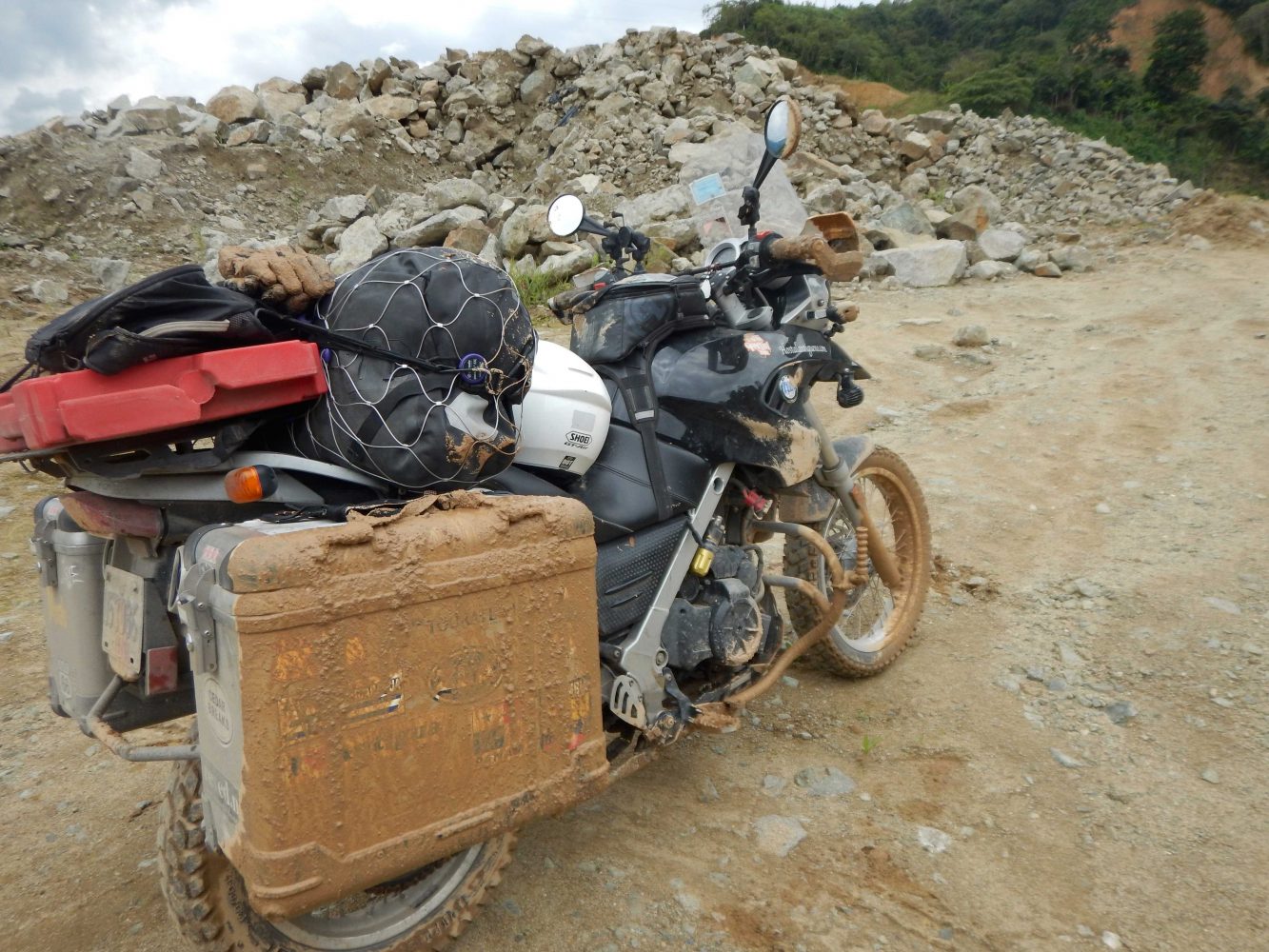
Not to try and intentionally sound bad ass but no, not once did I think about pulling the plug after that. It never even crossed my mind. In fact, it only served to fuel my fire to do this trip. I imagine many people, even some of our friends and family, thought I would see breaking a bone 2 weeks in as a sign not to attempt such a trip. Some folks think women aren’t as strong. I literally had a guy come up to me at a motorcycle meeting in Russia and ask if my bike wasn’t maybe too big for me. I felt like telling him I’d ridden over 50,000 miles to the point we were standing, much of it off-road.
Strength isn’t only shown as physical ability. It’s an asset in other ways as well. When we need to be, women are tough. For other times, well, yeah, we leave that up to the guys 😉 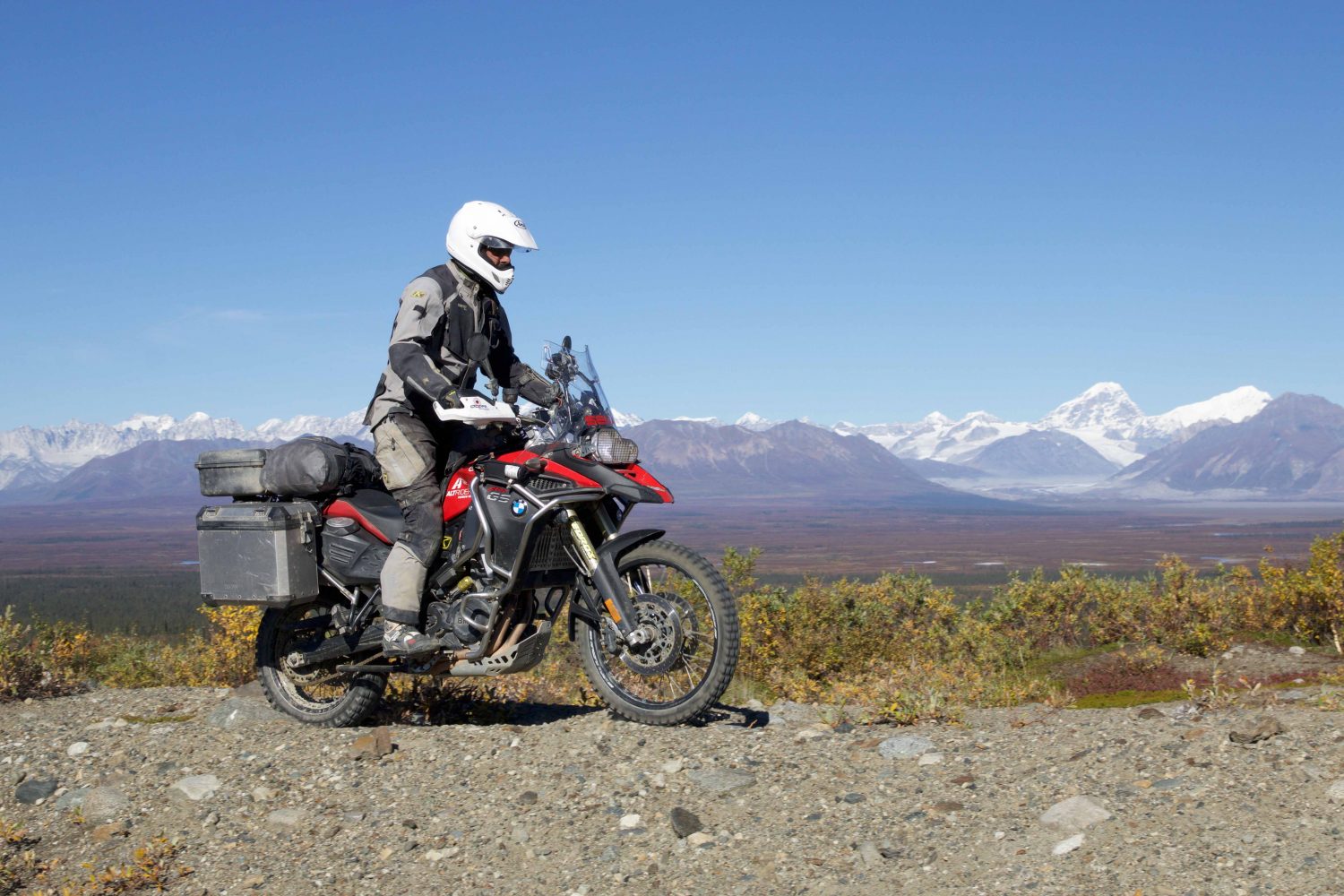
We’ve met people who use travel as an escape from work or relationships, for example, and others who are true adventurers down to their very core; dirty hotels and a lack of away-from-home organization doesn’t faze them. Dave and I love our lives back home and miss many aspects of it immensely at times, so maybe we fit loosely into the “pure adventure” category. A category where rationale doesn’t signal the brain and you sometimes wonder what the hell you’ve gotten yourself into.
Travel for us, either as individuals or as a couple, is neither a new life nor a blip in our history. It will forever be something we use to supplement our lives. We feel so fortunate to be from a part of the world where we’re free to travel. And what a shame not to take the opportunity. We’ve formed friendships with locals during our travels who, although they might even be considered “well-off,” couldn’t travel away from their country whether they wanted to or not without a huge sacrifice. These same people might be incredulous we sold a house and a business to fund this trip. They think we’ve lost everything important just to travel. It’s difficult to explain to someone who lives in a house passed down over generations that we can just go back, start again at our jobs, and buy a new house with minimal challenge.
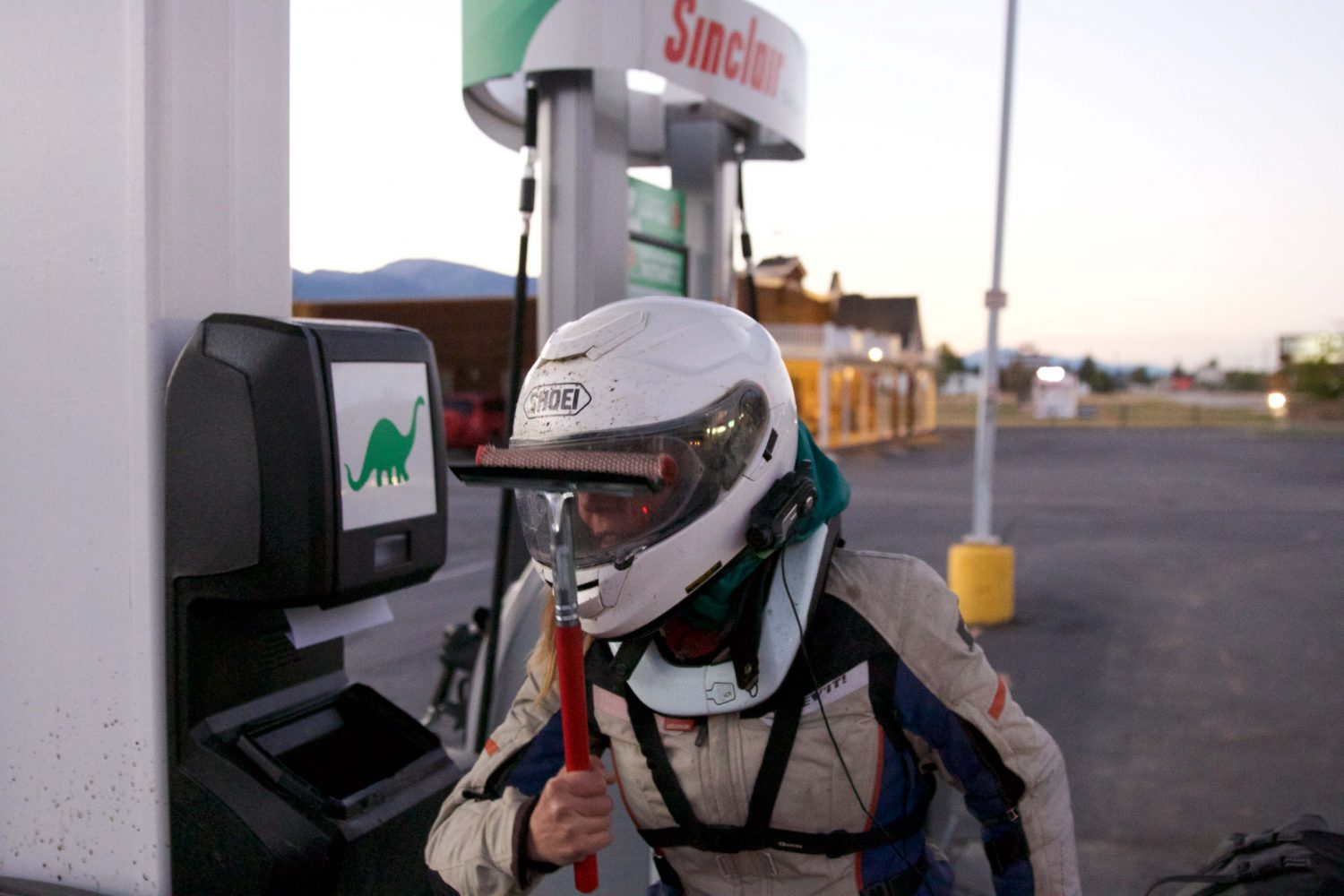
We have places: Baja, Patagonia, Alaska, the Yukon, South Africa, Namibia, the Alps, and I’m probably forgetting a dozen places in between. 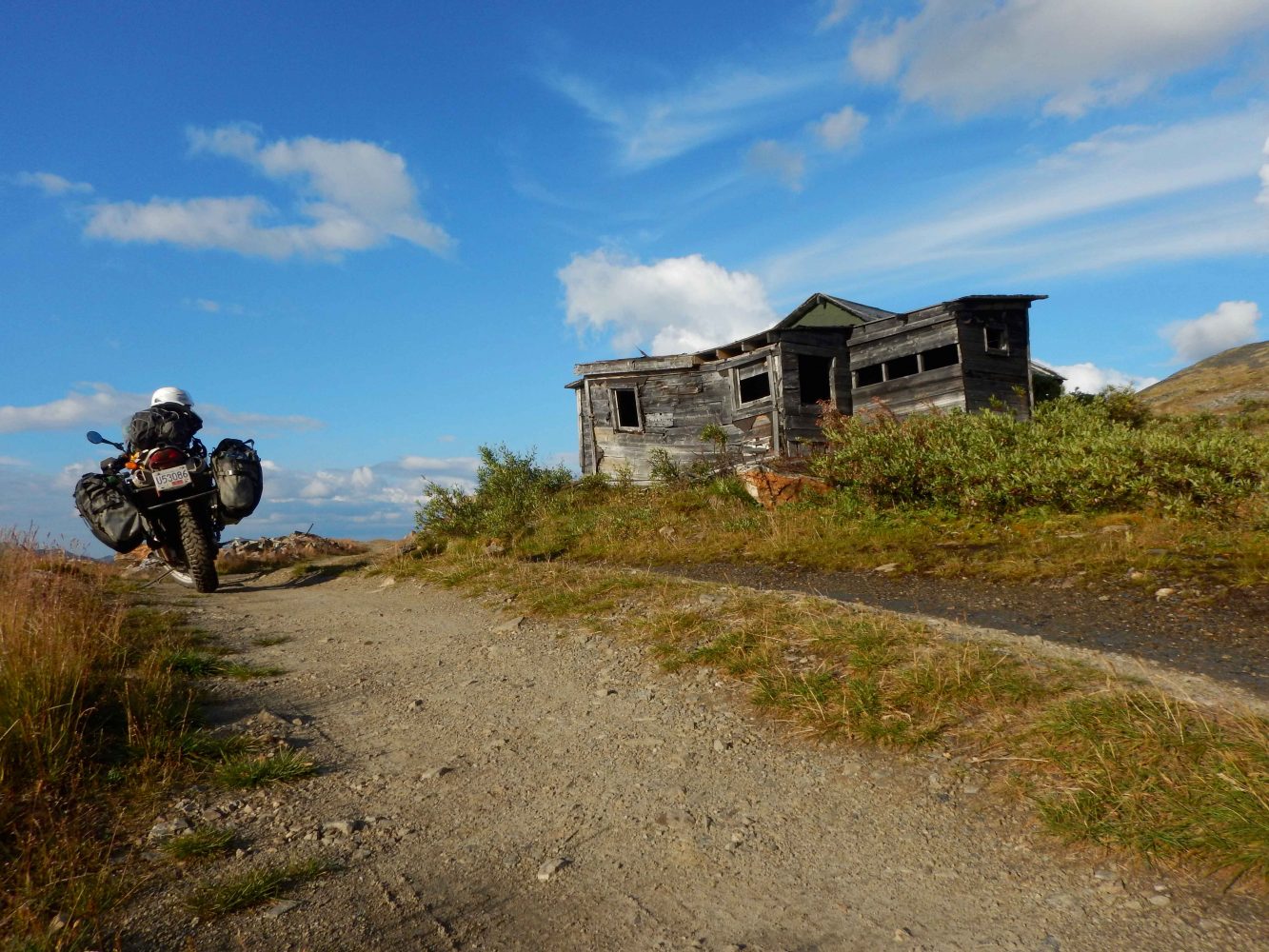
For Dave, it’s been travelling in places that are hot, which basically means anything over 65°F. We don’t have to wear full riding gear but we do for safety reasons and it can be a pretty shitty feeling putting on a heavy Kevlar jacket when it’s 90°F. Dave also likes logic and organization, so when we travelled through Africa, he was pretty much like a corked bottle waiting to pop.
For me, without question, the challenge has been the many times we are forced to wait for something during our trip when I wanted to be back on the road: Three months back home waiting for my wrist to heal; four months, also back home, waiting for our Russian visas, which is definitely something we could have prepared better for; waiting in hotels for days and days for parts we’ve ordered; and, perhaps the worst experience involving patience to-date was when we shipped our bikes from Africa to the U.K.—quite a nightmare. Dave scolds me when I say we “wasted time” doing this or that but I see it as time subtracted from travelling, which is what I’m here to do. When 7 out of the allotted 24 months in a trip is spent at home, blowing through saved trip money, it adds up.
I suppose all this means our biggest challenge is patience!

Absolutely travel can be a grind. Travelling ain’t no holiday! The difference between, say, a 2-week vacation in Mexico is you’re spending this time doing something fun and relaxing. With overland travel, you spend much of your time getting from one fun bit to the next and that in-between can be exceptionally boring. But what propels us is getting to that fun bit. Why do we want to ride the Road of Bones in Russia? Why did we do Lockhart Basin in Utah on huge bikes? Why did we want to ride every mile of the Washington, Idaho, and Utah Backcountry Discovery Routes? Because those are the fun bits. Not riding the pavement to get there.
Sometimes we forget we’re doing anything unique; we put fuel in our bikes, buy groceries, go to the bank, feel low on energy, spend too much money, become frustrated with people—just like at home. What really plugs us into what we’re attempting is when we meet people in the parking lot of a grocery store and they ask so many questions our answers pretty much have them walking off shaking their heads, calling us crazy.
Dave gets bored when we have access to Internet because I spend all my time working on the blog and uploading photos. The only time I’ve ever felt bored is riding long stretches that don’t have much to offer in the way of scenery—you’re just sitting there. I’ve wished desperately for some better sound systems in helmets and/or less wind noise so I can listen to podcasts or learn a language for the next place we’re visiting. It’s tough also to notice yourself complaining about another hotel night, or pulling clothes out of a duffle bag when you’d rather have them hanging in a closet and having more than one item of clothing to choose from. I’d say noticing yourself complaining is one of the toughest things because you feel guilty. Everyone’s saying you must be having the time of your life and sometimes you’re just not. 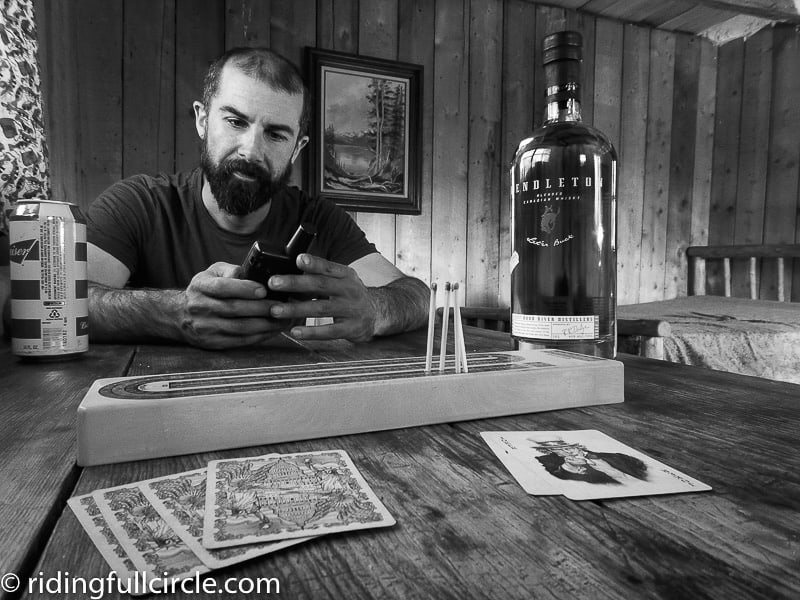
Before we left, we spent a month consolidating our gear to what we thought was the bare minimum. Then, when we packed to go, I had a panic attack—how was I going to carry all this? We had dry bags strapped to dry bags. Less than a month in, we found a traveler who would take about 30 pounds of crap back to the U.S. for us. Since then, we’ve dropped weight and volume from our bags no less than a half dozen times. We have only two panniers and a small duffle each now. And we still think we have too much stuff. There’s a fine line between being prepared and going lightweight, but that doesn’t just apply to motorcycle travel. When you carry more you have more to worry about.
Definitely we’ve learned a ton about gear; what to use and what not to use. Expensive doesn’t always mean better but it might mean the difference between a hassle-free warranty and unanswered e-mails.
Our route changed after South America and we were able to swing back through home. This was the perfect opportunity to get rid of stuff that we didn’t use or had to replace for something better or stock up on what we loved.
Also, we didn’t skimp on bike mods and bought the toughest stuff we could find. It hurts the wallet at first but once you’re out there, you won’t care if your custom-made seat costs $600. You’ll care that you’re going to spend three times that on a chiropractor.
And on that note, try not to care about money or make a budget. Dave and I planned $100 U.S./day/couple or $50 U.S./day/per person. Sometimes we far exceeded it and sometimes, we get lucky. You’ll never feel like you’ve saved enough for a round-the-world trip so save what you can then find luck on the road. As mentioned above, we’ve had people buy us hotel nights. Don’t count on this, of course, but once you get into your nomadic lifestyle, you’ll see what a money-saving dirtbag you can become.
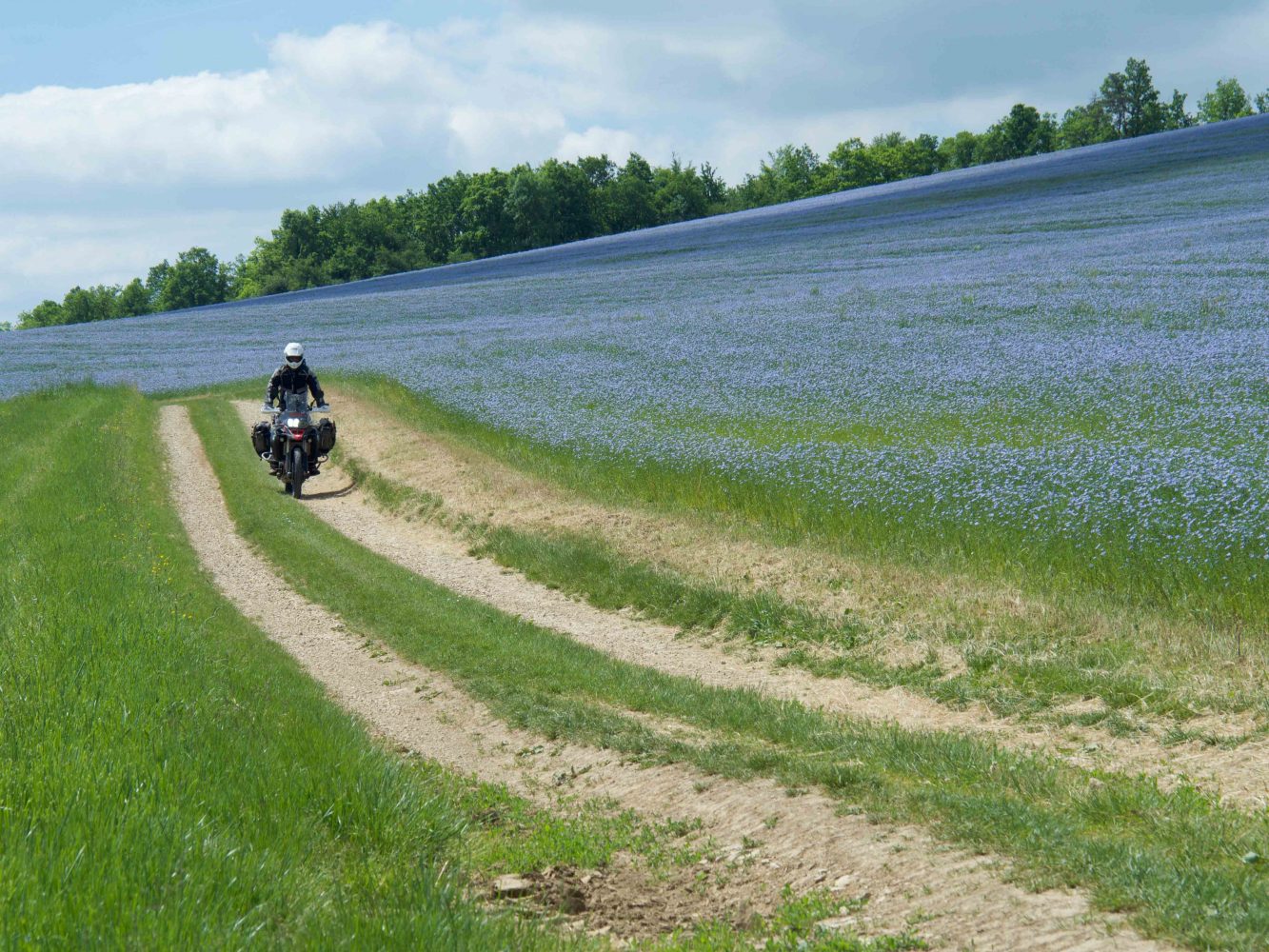
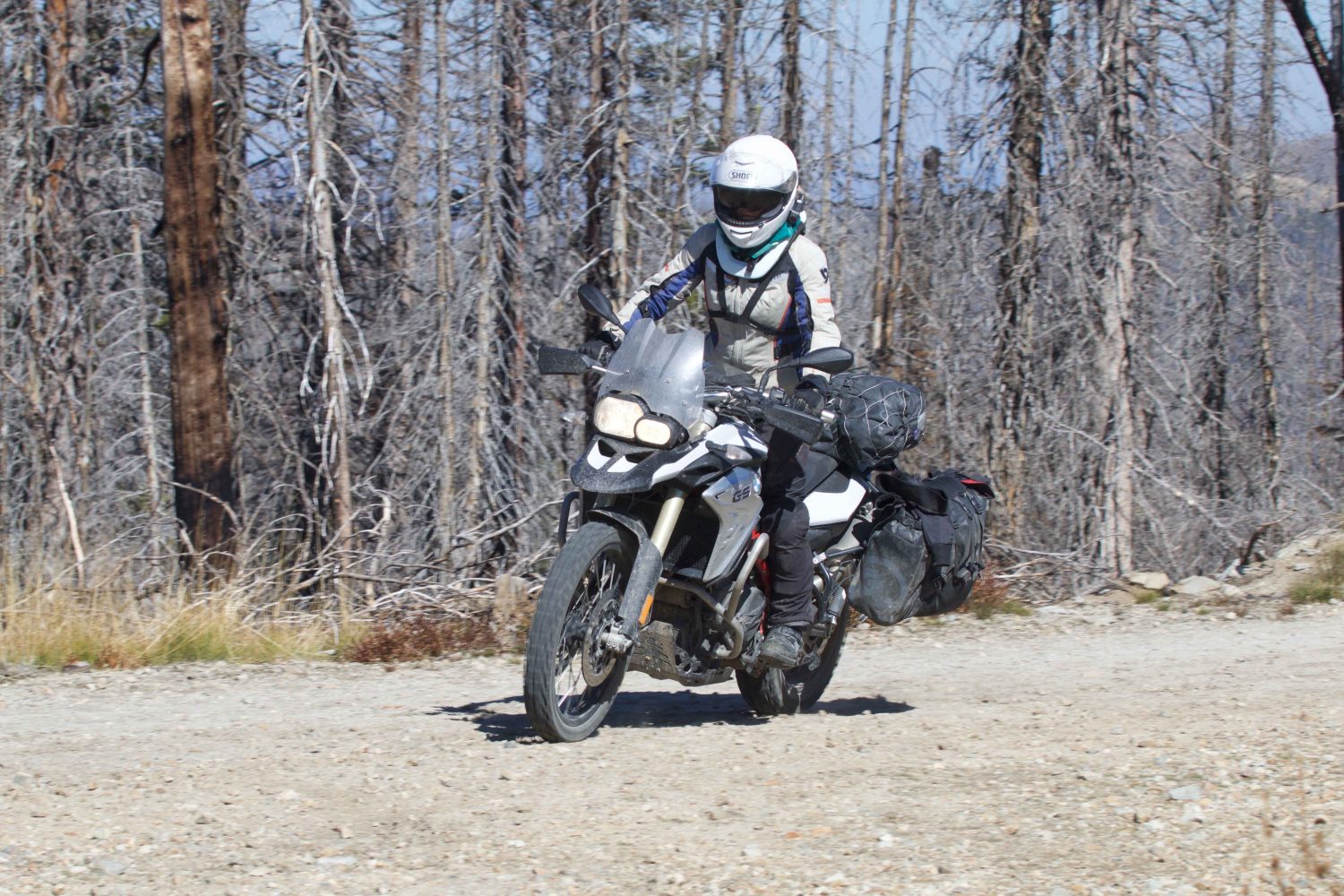
Unless we’re staying with friends or family, we’re usually caught out without a place to stay. We drive around looking for campsites, both wild and organized, or use iOverlander, couchsurfing.com, motostays.com, and booking.com. Or just go from hotel to hotel until we find something that will work.
Our very first night in Mexico, we camped off the side of the road behind a gravel pile. We were so scared all night we’d be beheaded as “always happens in Mexico” that we stayed awake all night. We hardly ever know where we’re staying and sometimes we find ourselves either paying a stupid amount of money to stay in the only hotel available or sleep in the tent in a less desirable place. But looking back, we’ve never slept in any public bathrooms, so I guess things always work out. 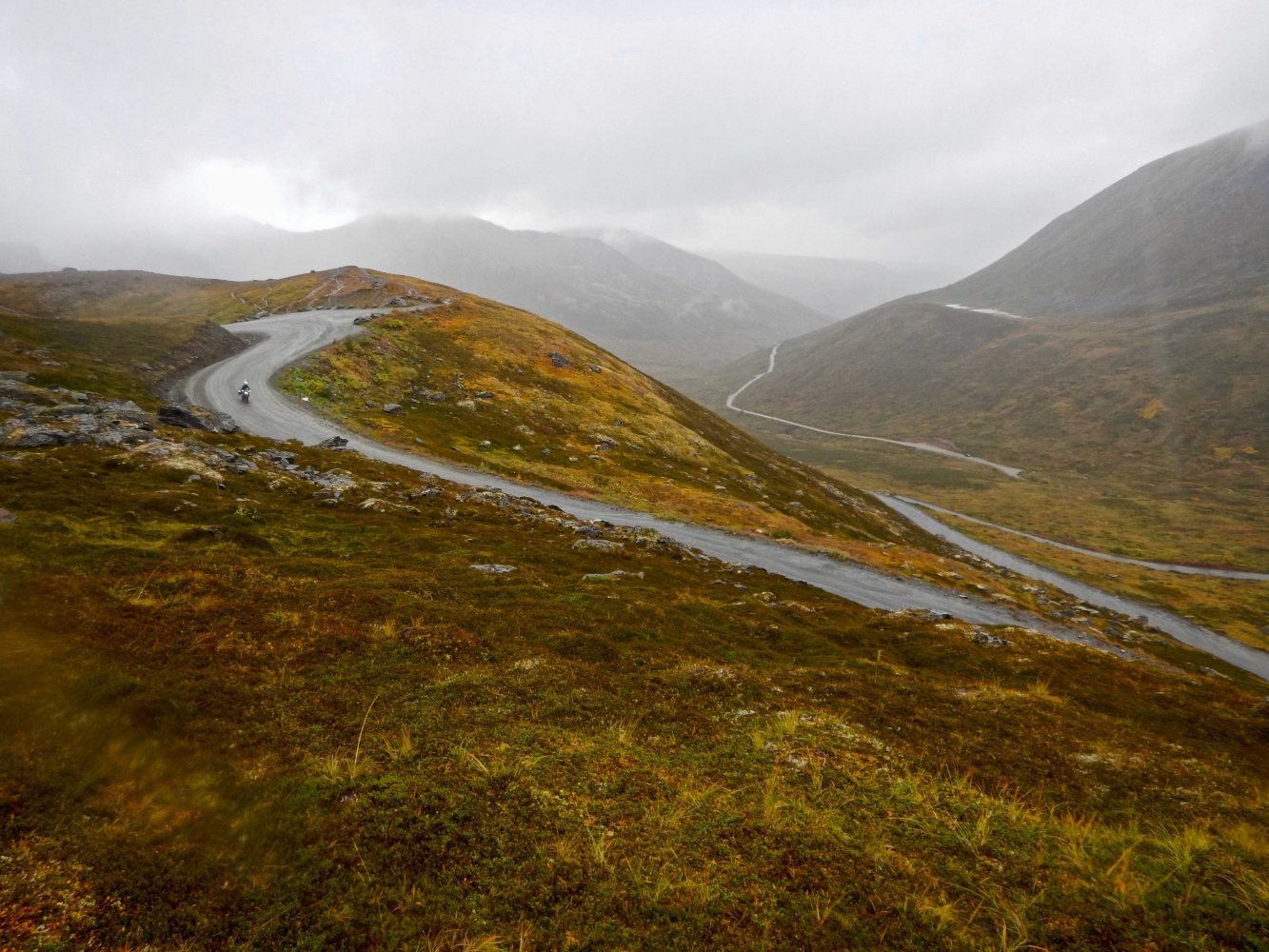
All of them! Getting off the bike and seeing the Galápagos Islands or spending a few nights in a place you thought you’d only stay for one because it’s got that special feel is the key to experiencing good travel. But the best off-bike excursion has to be when we climbed Kilimanjaro in Tanzania and Dave proposed to me at the top.
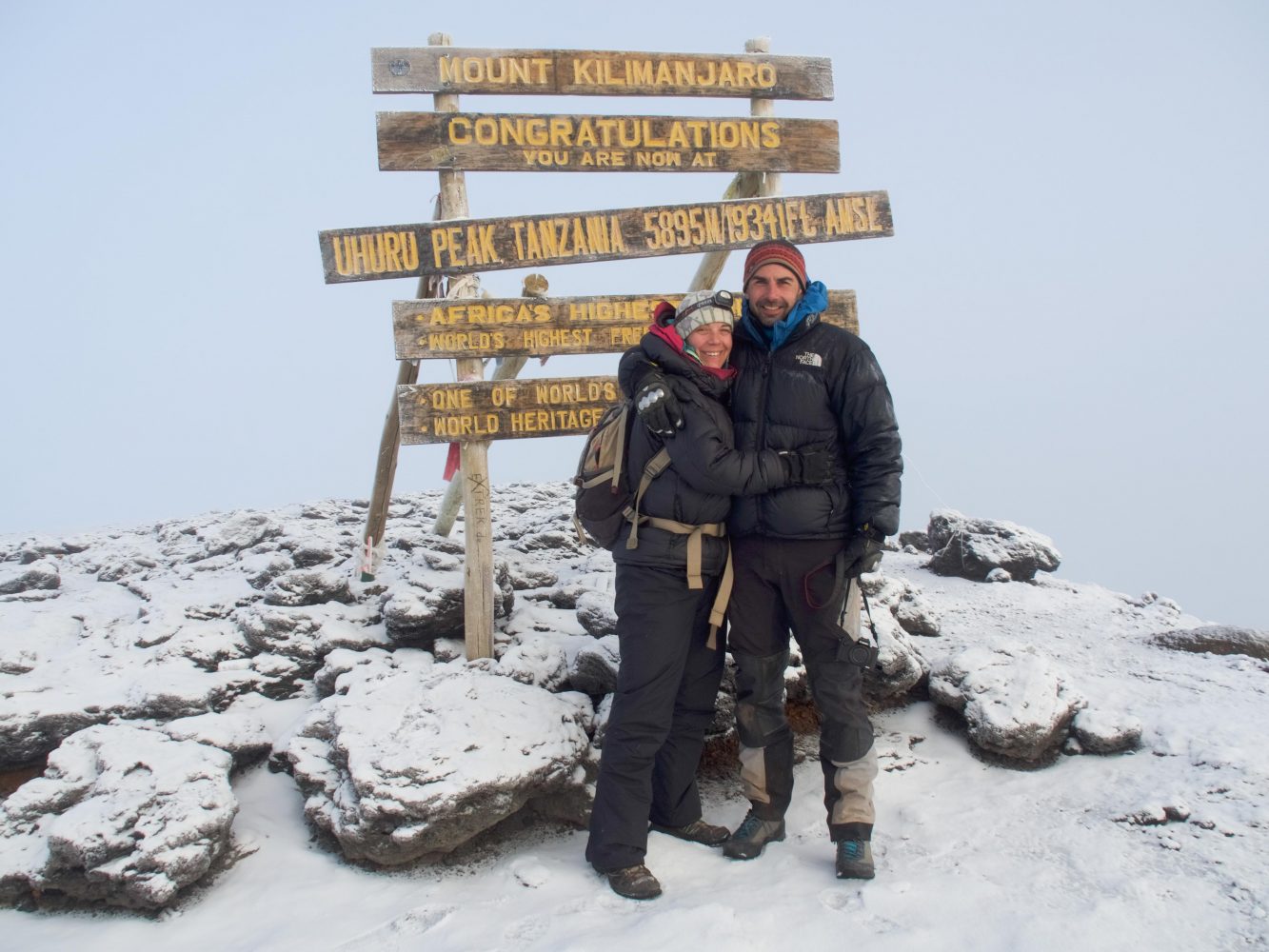
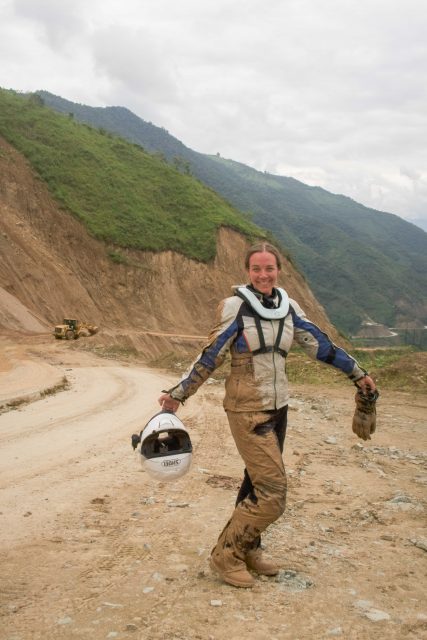
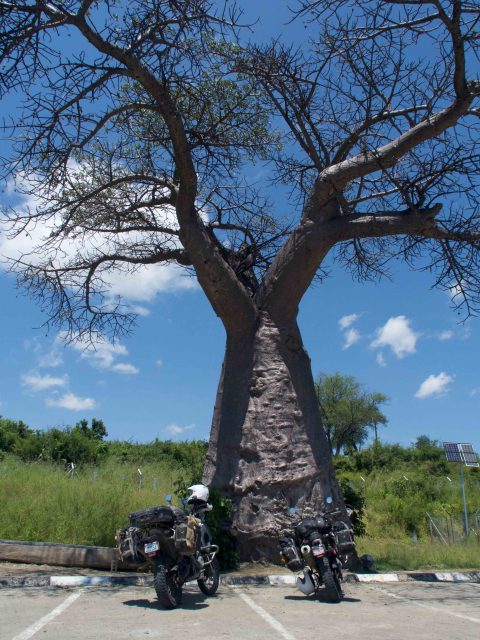
Home! We just have to get across Russia, Kazakhstan, and Mongolia first. We look forward to having more than two pairs of underwear, a selection of meats that won’t kill us, and our memory foam pillows. But that’ll get boring soon, so we have already been talking about another trip planned in 5-10 years, this time in a truck. Motorcycles are a great way to feel the world, but once is enough. We’re thinking a trip from the Balkans through Iran and the ‘Stans to Nepal and India.


